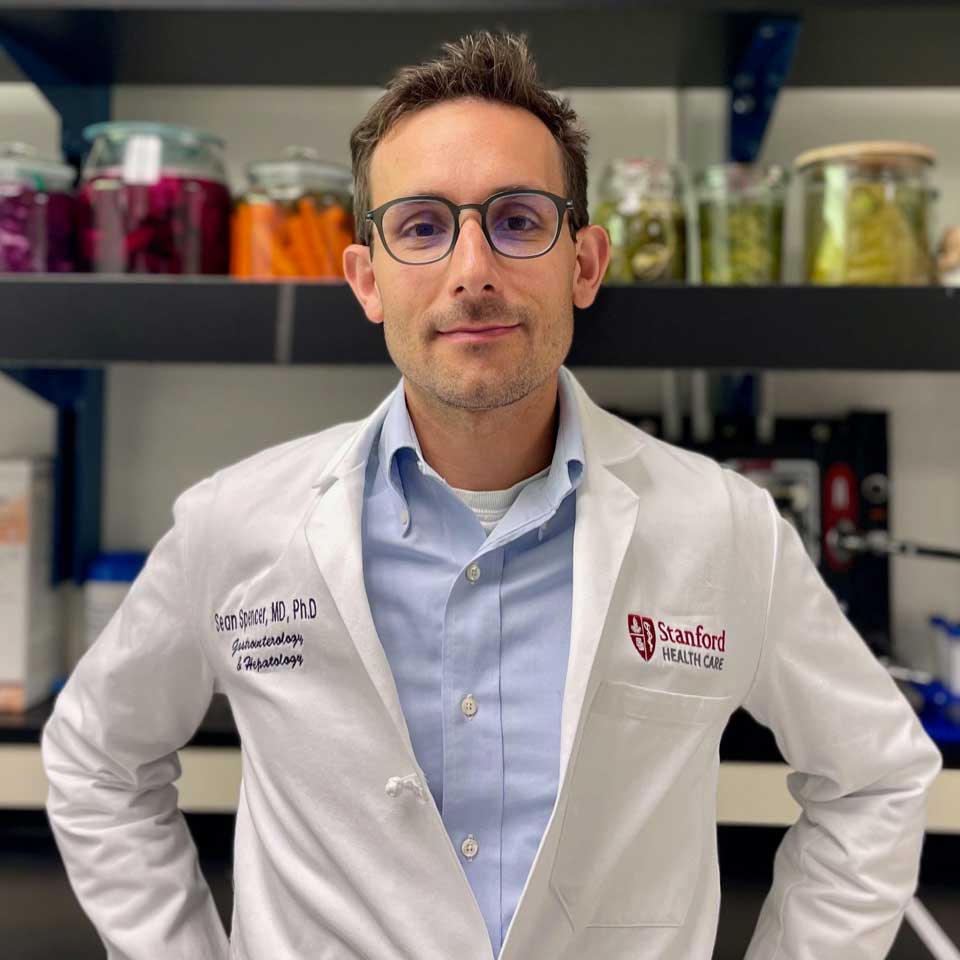
Fall 2021 Newsletter
Announcing the 2021 Fellows!
Cailin Collins, M.D., Ph.D.
For training at Stanford University School of Medicine with Dr. Ravindra Majeti
Acute Myeloid Leukemia (AML) is an aggressive form of blood cancer with an extremely poor prognosis for patients. Like other cancers, AML develops through the accumulation of genetic mutations that cause blood stem cells to grow uncontrollably. Dr. Collins is working to generate models of the earliest stages of AML development using CRISPR editing. By introducing these mutations into human blood stem cells, Dr. Collins aims to uncover critical pathways required for the transition from a healthy stem cell into cancer. The hope is that these pathways can be targeted with novel treatments to prevent the development of AML.
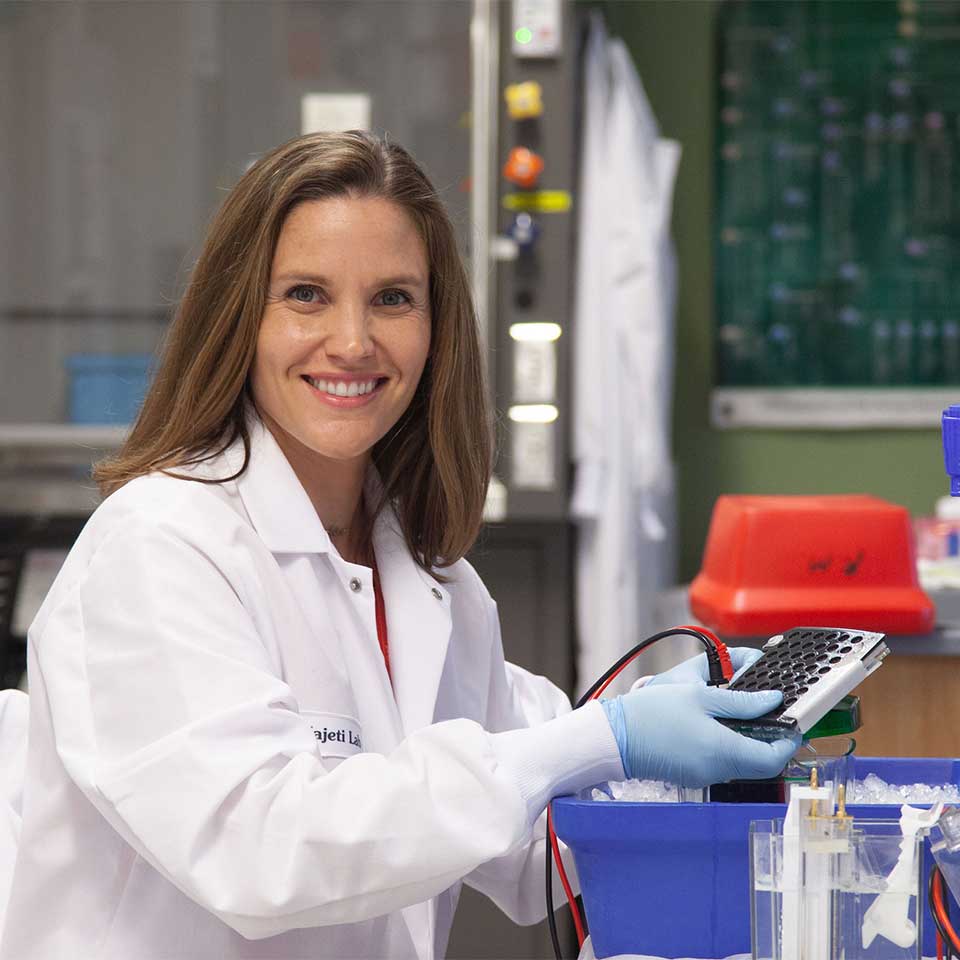
Connie Fung, Ph.D.
For training at Stanford University School of Medicine with Dr. Michael Howitt
More than one billion people worldwide harbor parasitic worms in their intestines. Worm infections disproportionately affect those in communities of extreme poverty and are some of the most neglected diseases in healthcare systems and scientific research. Dr. Fung seeks to better understand the host responses mounted against intestinal worms. Dr. Fung is studying the tuft cell, a specialized cell type, stationed at the intestinal lining, that detects the presence of worms and informs the immune system of an infection. Dr. Fung hopes her research leads to novel therapies that enhance parasite clearance.
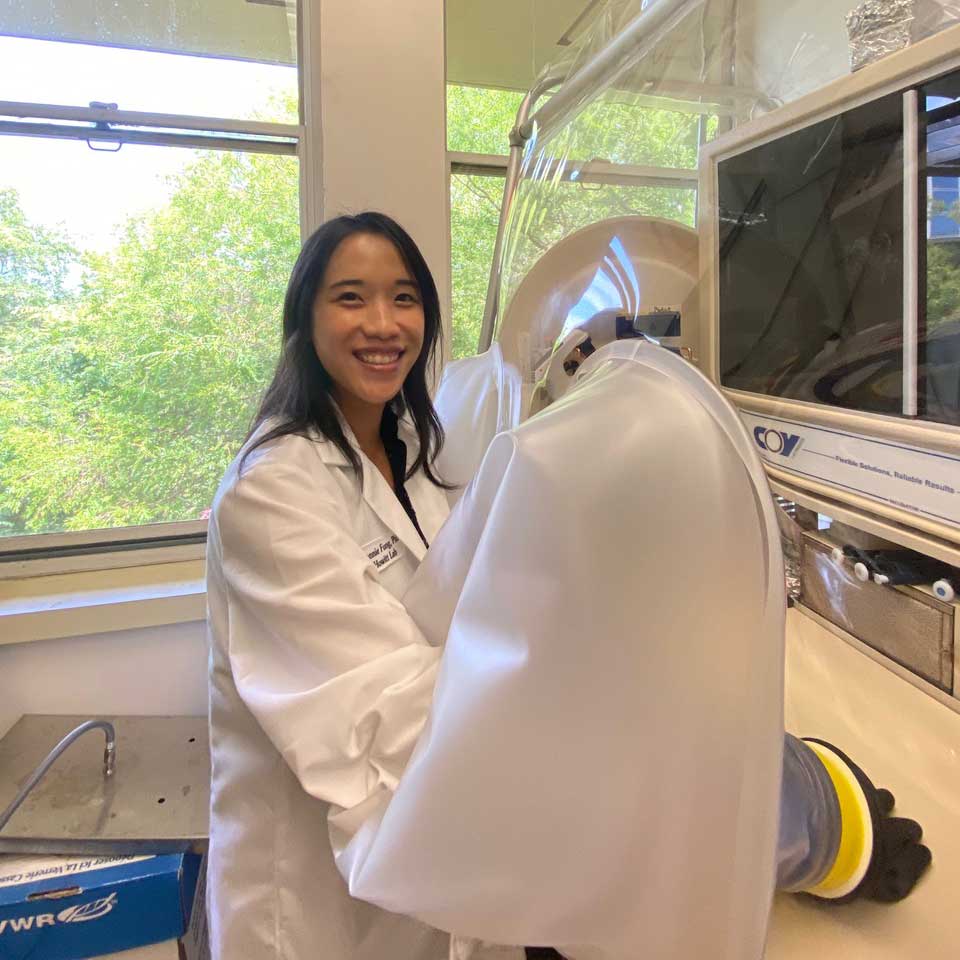
E. Jen Jin, Ph.D.
For training at University of California, San Diego School of Medicine with Dr. Yishi Jin
The brain is plastic; circuit connections can remodel in response to changes in neuronal activity, thus enabling individuals to learn and adapt to the environment. The brain is most plastic during early development, and as a result, learning is often much easier for children than adults. Dr. Jin’s research focuses on understanding how the timing and duration of this developmental plasticity is regulated at cellular and molecular levels. Her long-term goals are to discover how to extend this developmental plasticity later in life and to apply this knowledge to prevent and treat neurological disorders including learning disabilities and brain injuries.
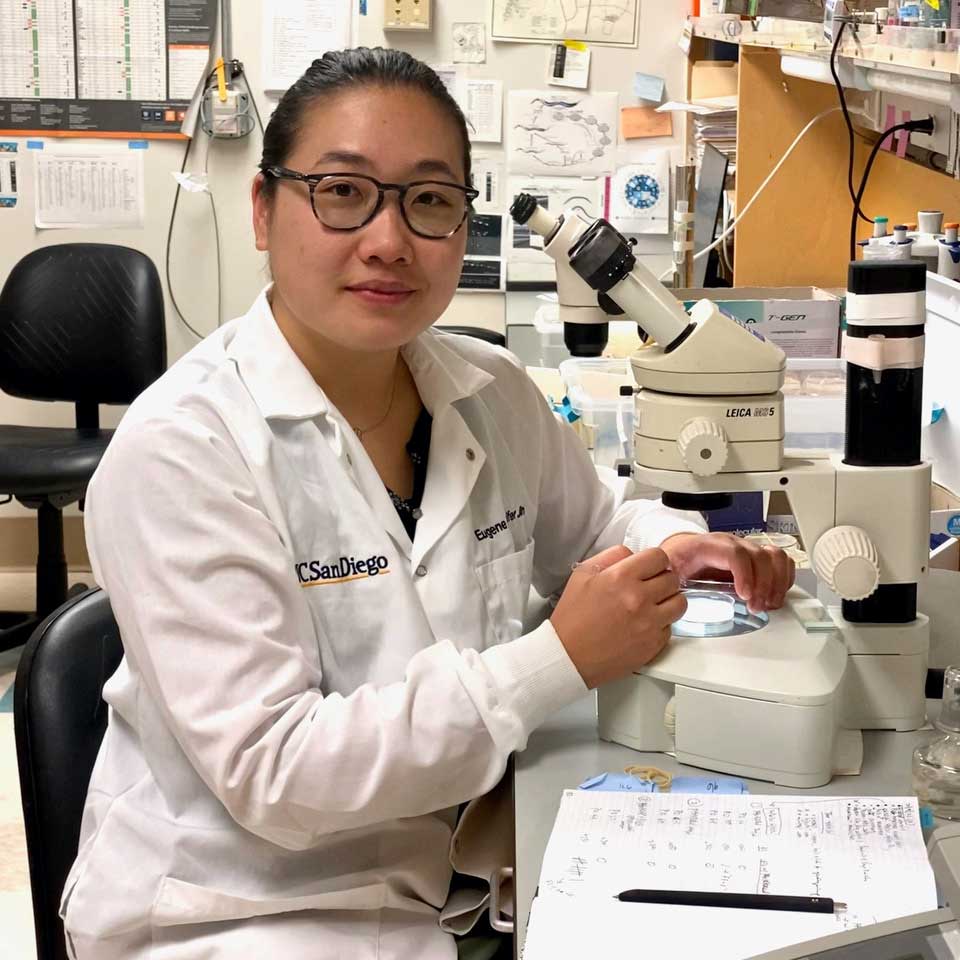
Jun Woo Kim, Ph.D.
For training at Stanford University School of Medicine with Dr. Julien Sage
Small cell lung cancer (SCLC) is one of the deadliest cancer types with an average 5-year survival rate of less than 5 percent. Drawing on his doctoral training in protein engineering, Dr. Kim has begun to identify metabolic weaknesses in SCLC cells. By developing new enzymes to degrade the cells’ ability to metabolize, Dr. Kim’s research may lead to a novel therapeutic strategy that can directly impact SCLC patients around the world.
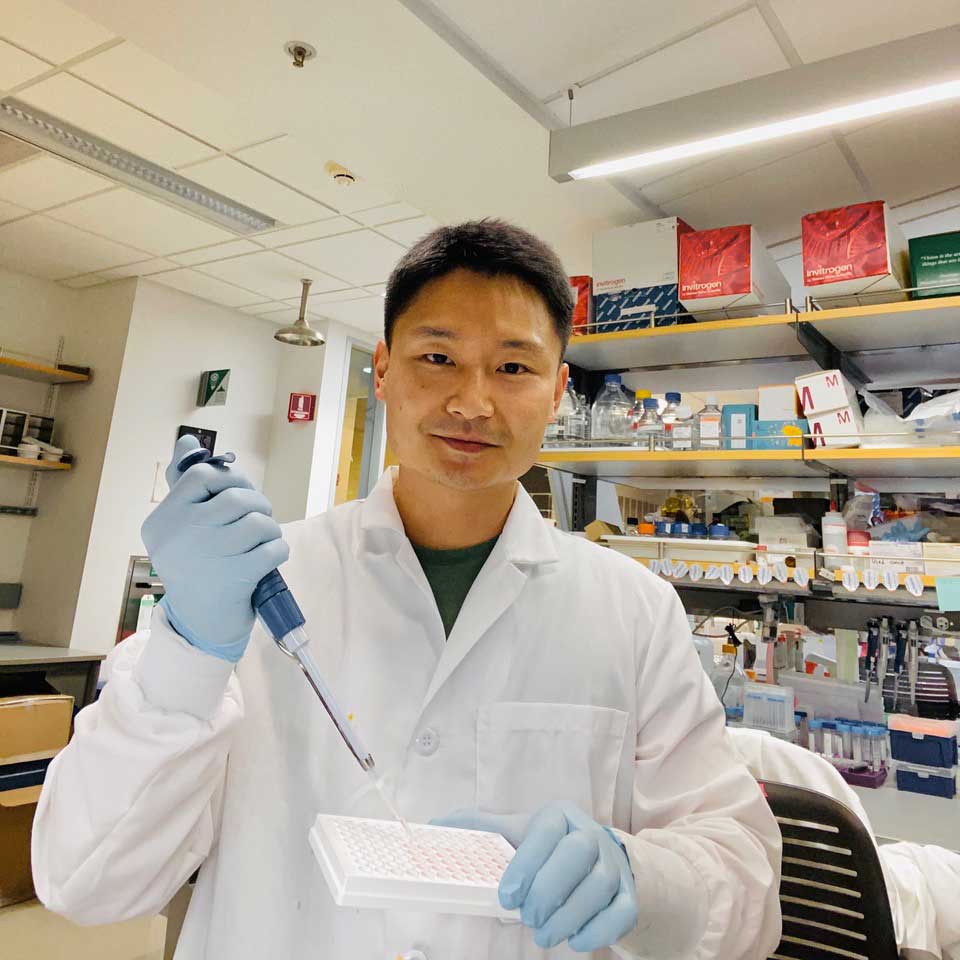
Sydney Ramirez, M.D., Ph.D.
For training at University of California, San Diego School of Medicine with Drs. Davey Smith and Shane Crotty
Studying how the immune system responds to viruses like SARS-CoV-2 can help to explain why some individuals suffer from more severe illness and worse clinical outcomes. It is important to know what components of the immune response confer protective immunity to infection or vaccination and how long protective immunity lasts. By studying T cell and other adaptive immune responses in individuals with COVID-19 across the spectrum of disease severity and in the context of vaccination and immune-based therapeutics, Dr. Ramirez hopes to identify the elements of the SARS-CoV-2-specific immunity that influences clinical outcomes. This information will ultimately assist with the development of improved vaccines and therapeutics.
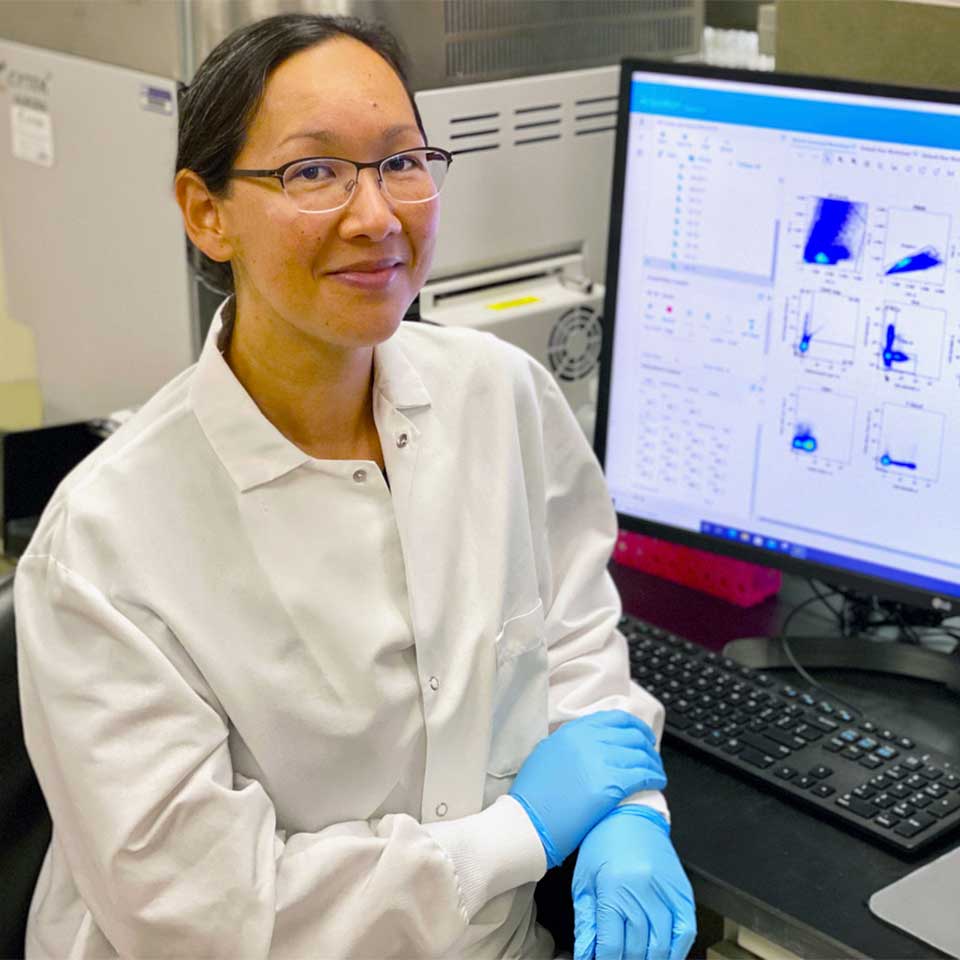
Diedre Rietz, Ph.D.
For training at University of California, Davis School of Medicine with Drs. Wolf-Dietrich Heyer and John McPherson
Lynch syndrome is a disorder that predisposes patients to cancer due to inherited mutations in the genes that encode the mismatch repair proteins. The mismatch repair proteins are critically important to preventing cancer because they guard against genome rearrangements and mutations. Dr. Reitz aims to define the mechanism through which the mismatch repair proteins prevent genome rearrangements and to determine the contribution that loss of this function plays in the formation of patient tumors.
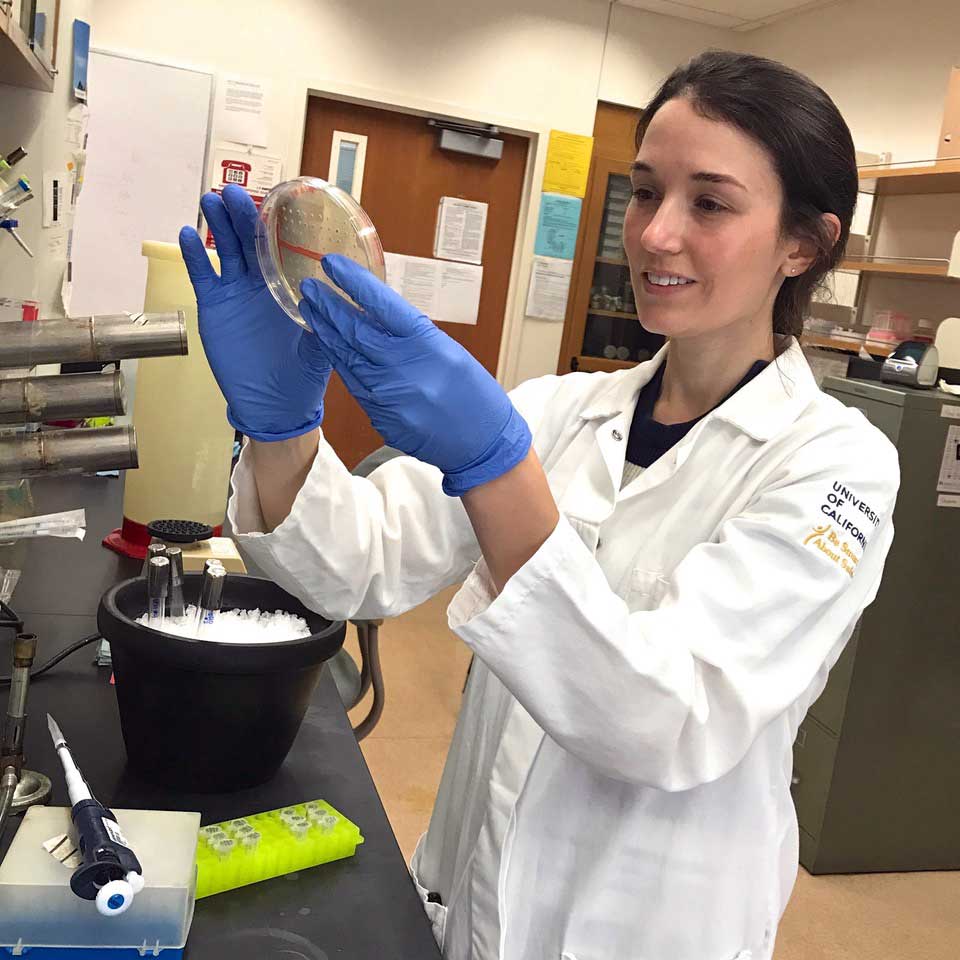
Makeda Robinson, M.D., Ph.D.
For training at Stanford University School of Medicine with Dr. Shirit Einav
Infecting up to 400 million people annually, dengue virus is a major threat to global health. The underlying host factors that trigger differences in disease outcomes remain unknown. Dr. Robinson seeks to better understand dengue pathogenesis in an effort to identify predictive signatures of disease progression. Dr. Robinson is investigating immune cell shifts associated with dengue severity at a single-cell level. Her long-term goal is to advance the development of a prognostic assay for early detection of severe dengue.
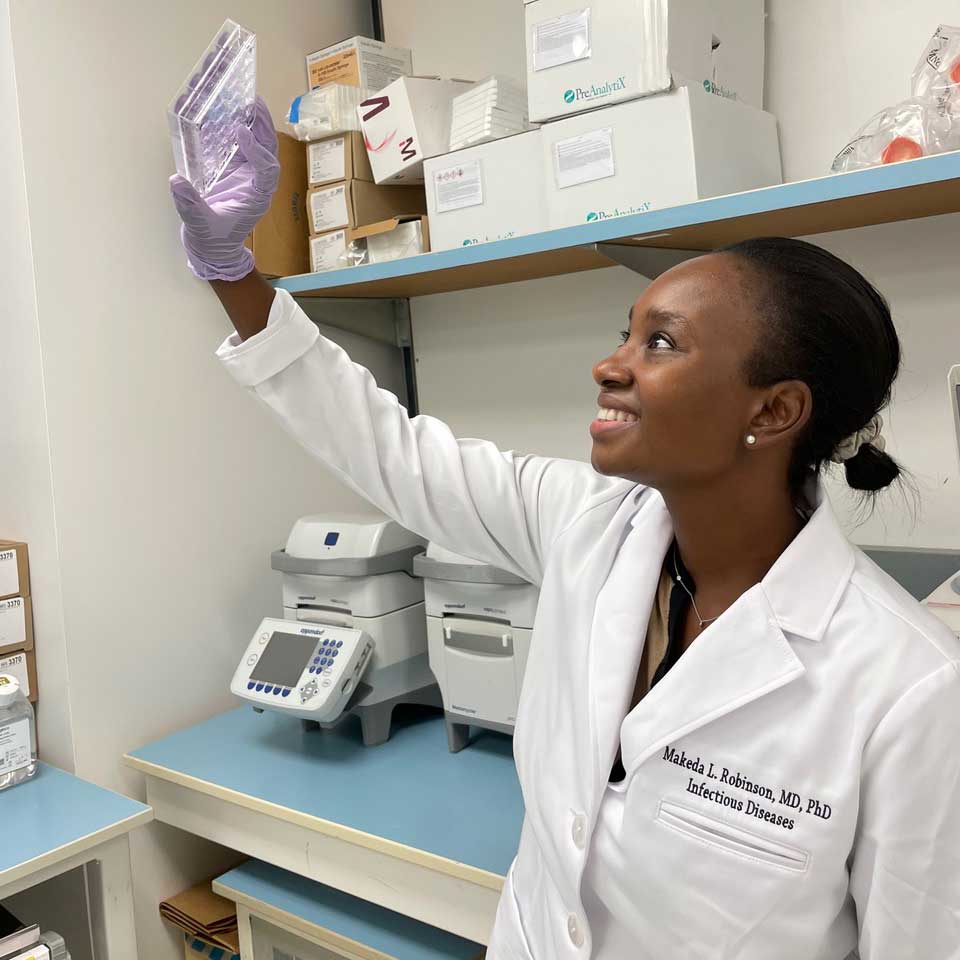
Sean Spencer, M.D., Ph.D.
For training at Stanford University School of Medicine with Dr. Justin Sonnenburg
Increased consumption of fermented foods (e.g., yogurt, kombucha, kimchi, and sauerkraut) was shown in a recent human clinical trial to reduce levels of chronic inflammation and to increase levels of beneficial bacteria in the intestine. Dr. Spencer seeks to better understand the health-promoting effects of fermented foods by defining the chemical and microbial content of fermented foods found beneficial in the clinical trial and using that content to reduce intestinal inflammation in animal disease models. The goal is to harness the therapeutic potential of fermented foods for the prevention and treatment of chronic gastrointestinal inflammatory diseases in humans.
